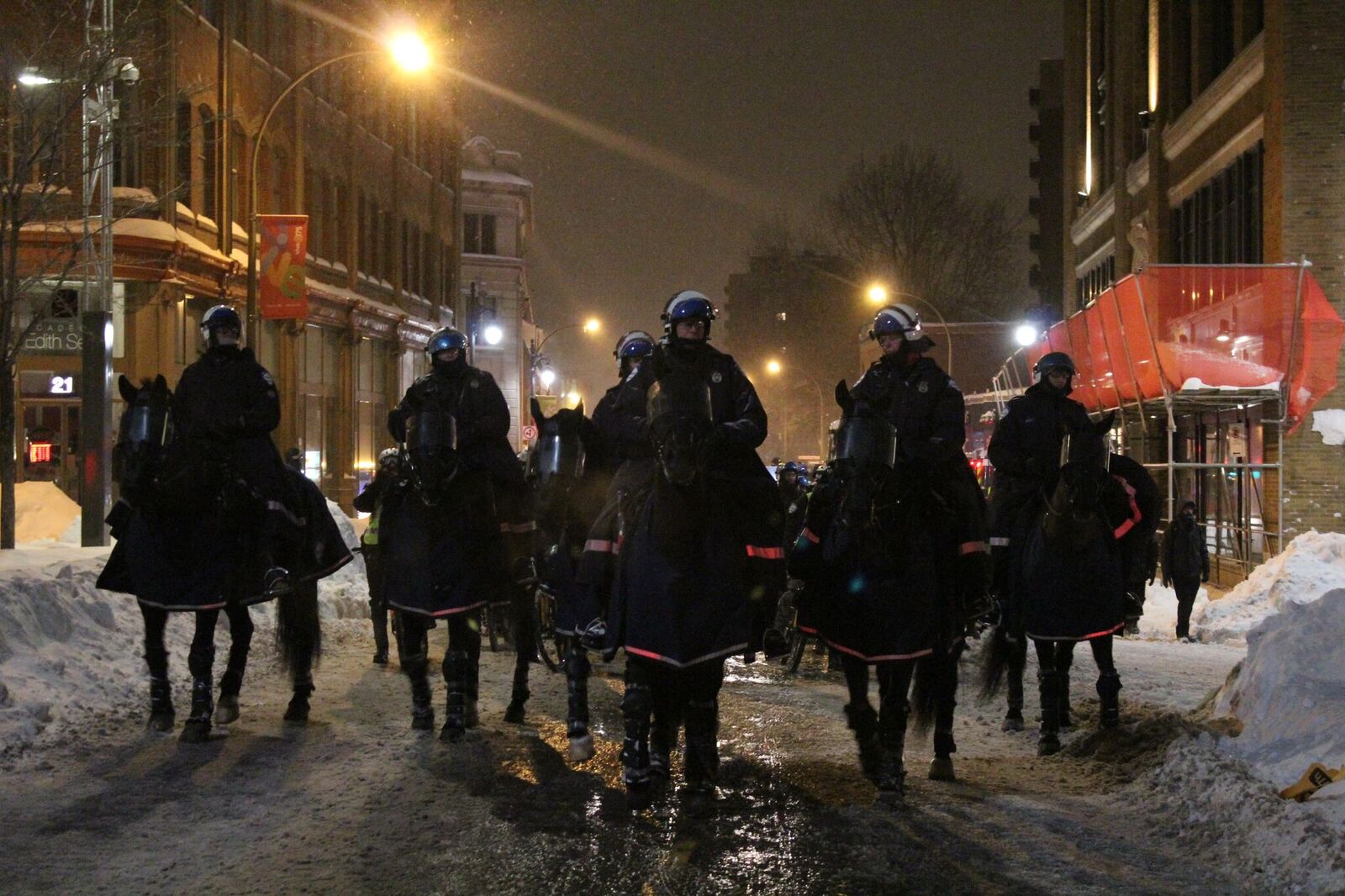The annual march against police brutality on March 15 is an international protest dedicated to raising awareness of the rights of citizens and supporting victims of excessive police violence.
Despite several other large gatherings being cancelled over the coronavirus, the protest took place.
Usually, the contentious event involves clashes between officers and protestors resulting in mass arrests, injured police officers and citizens, and vandalism, since its creation in 1997. This Sunday’s protest included a protest gathering, testimonials and speeches by victims of police brutality, such as Marie Dimanche who spoke about the issues of political corruption in Haiti.
The event was co-created and organized by the Montreal-based Collective Opposed to Police Brutality (COBP), an autonomous group dedicated to denouncing violence by police through marches, workshops, research, and other social projects. According to COBP, there were a total of 150 people and three arrests at the protest on Sunday. The SPVM, however, said there were no arrests made.
Due to the coronavirus pandemic, some conversations on notable issues of police brutality in Montreal were absent. This included speaks on the death of Pierre Coriolan who was shot by the SPVM and Gabrielle Duchesneau, who had suffered a fractured skull during a demonstration on International Workers’ Day in 2012.
Consisting of victims, witnesses and those troubled by police violence, some members choose to remain anonymous to not be targeted by the authorities, including a member of the COBP who helped organize the march and goes by the alias 1312.
“It doesn’t matter if it is a right or a left [government], the repression is always there,” said 1312, speaking of the theme of this year’s event, “Police everywhere, justice nowhere.”
He explained how the focus of the protest would also include solidarity with social movements against authoritative repression targeting citizens’ rights and freedoms. He mentioned issues abroad in countries facing government oppression such as Chile, Haiti and Iran, and here in Canada with racial profiling.
A report last year documented how the SPVM has a systemic bias in targeting racial minorities during street checks. The findings drew a wide range of criticism, with many defining the acts of the police as racial profiling and remarks from city officials such as mayor Valérie Plante for calling for a change in SPVM’s conduct.
“We already knew it was happening, the sole difference is now, it is written on paper,” said 1312, who explained the situation with the police concerning racial profiling in Montreal has not changed. “We are inundated with calls, people sending emails, and of people who are victims of racial profiling.”
Adeela Arshad-Ayaz, Ph.D., is an associate professor at the Department of Education at Concordia University and a fellow of Loyola College for Diversity and Sustainability. Arshad-Ayaz researches and teaches on a variety of social subjects and issues, from multiculturalism to extremism.
She said, “Nobody is cut off from wider society. So police whether its police, or lets say academia, from where I am from, we are all a part of a bigger society, and the wider societal discourses they work on us and we are living in times where the tolerance is low and people try to take shortcuts, and we try to categorize people in small groups and label them and then it’s much easier for us to access that information.“
Arshad-Ayaz said that unlike those working in academia who have time to ponder decisions, “the nature of their [police] work is such that they have to take instantaneous actions.” She added that the only way to combat it is to increase transparency and to have, “balances, checks and measures, so that we can avoid brutality and violence because in the end we are all human beings and we can all make wrong decisions.”
The SPVM refused two attempts made to contact them for comment on the protest.
Photos from archive – by Alex Hutchins (2017)




